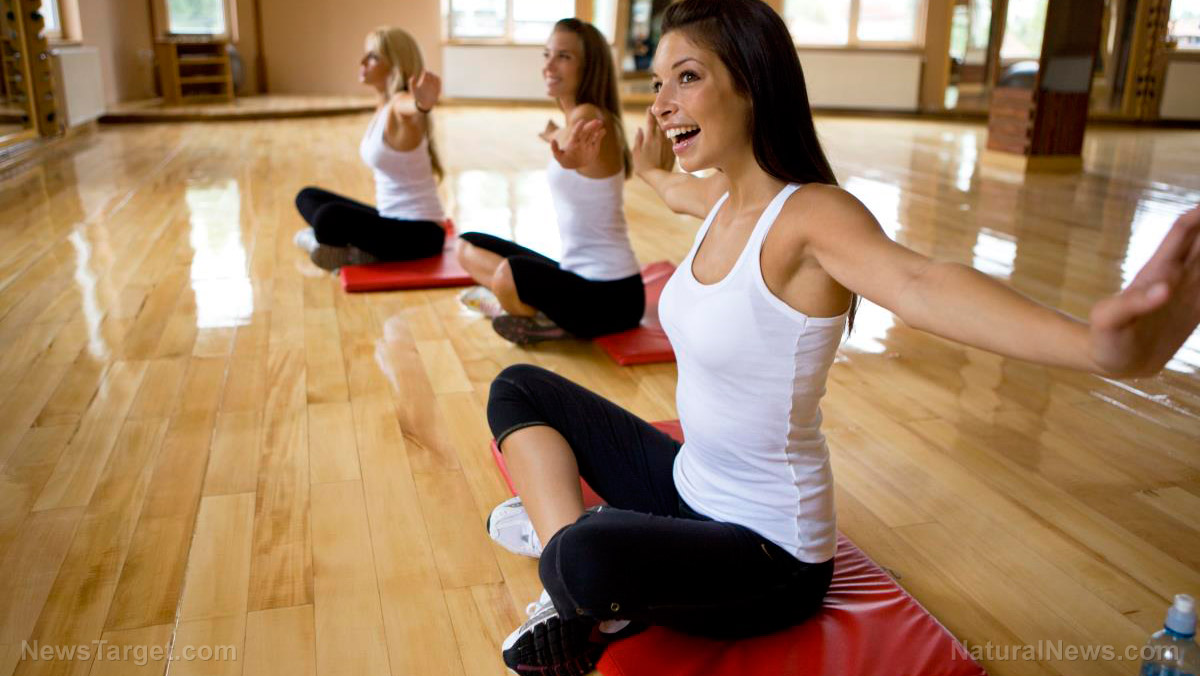Just move: It doesn’t matter what you do as long as you do something, according to international study
09/30/2017 / By Earl Garcia

Meeting the recommended amount of exercise regardless of the activity undertaken may help improve the body’s overall well being, a study in The Lancet has revealed. According to researchers, physical activity of any kind may reduce the odds of suffering heart disease and subsequent death.
Health experts at the Population Health Research Institute of McMaster University and Hamilton Health Sciences pooled data from the Prospective Urban Rural Epidemiology (PURE) study in order to carry out the research.
The recent large-scale study involved a total cohort population of 130,000 people from 17 countries including lower- and middle-income nations.
“By including low and middle-income countries in this study, we were able to determine the benefit of activities such as active commuting, having an active job or even doing housework, Going to the gym is great, but we only have so much time we can spend there. If we can walk to work, or at lunch time, that will help too,” lead researcher Dr. Scott Lear told Science Daily online.
The research team found that meeting the current guidelines of 30 minutes of daily physical activity or 150 minutes of weekly exercise helped reduce the risk of developing heart disease by 20 percent. The study also revealed that meeting the exercise guidelines slashed the risk of all-cause mortality by up to 28 percent.
“Meeting physical activity guidelines by walking for as little as 30 minutes most days of the week has a substantial benefit, and higher physical activity is associated with even lower risks. Physical activity represents a low-cost approach to preventing cardiovascular disease and our study provides robust evidence to support public health interventions to increase all forms of physical activity in these regions,” Dr. Lear said in a separate Daily Mail article.
In addition, the researchers found that the beneficial effects of exercise persisted regardless of the routine the participants followed, be it going to the gym to workout or doing household chores.
The study also showed that spending more than 750 minutes of brisk walking per week may reduce the odds of death by up to 36 percent. However, less than three percent of participants were able to achieve this by undergoing leisure-time activities. Likewise, only 38 percent of participants were able to meet this level from other activities such as doing household chores, being active at work, and commuting.
“For low and middle income countries where having heart disease can cause a severe financial burden, physical activity represents a low-cost approach that can be done throughout the world with potential large impact. If everyone was active for at least 150 minutes per week, over seven years a total of eight percent of deaths could be prevented,” said Dr. Salim Yusuf, Director of the Population Health Research Institute.
Another study backs the efficacy of household chores against heart attack
A study published early this year also demonstrated that doing household chores may well prevent the onset of a heart attack.
Previous research showed that certain exercise regimes such as tai chi, yoga, and balance training effectively reduces heart risk. However, these activities remain to be a challenge for the elderly population with cardiovascular disease.
The study, which appeared in Circulation, demonstrated that doing household chores — such as making the bed, carrying the laundry, and climbing the stairs as well as dancing or walking — were the simplest form of physical activities that helped maximize body function and lowered the odds of heart attack in older people.
Emphasizing the importance of body function by accomplishing household chores may well improve the quality of life in older patients, according to Dr. Daniel Forman, a geriatric cardiologist and chair of the American Heart Association. (Related: Simple protein called “cardiotrophin 1” found to trick the heart into thinking you’ve exercised like crazy, rapidly expanding heart function and repair.)
Sources include:
Tagged Under: exercise, fitness, heart attack, heart disease, heart health, longevity, workout




















